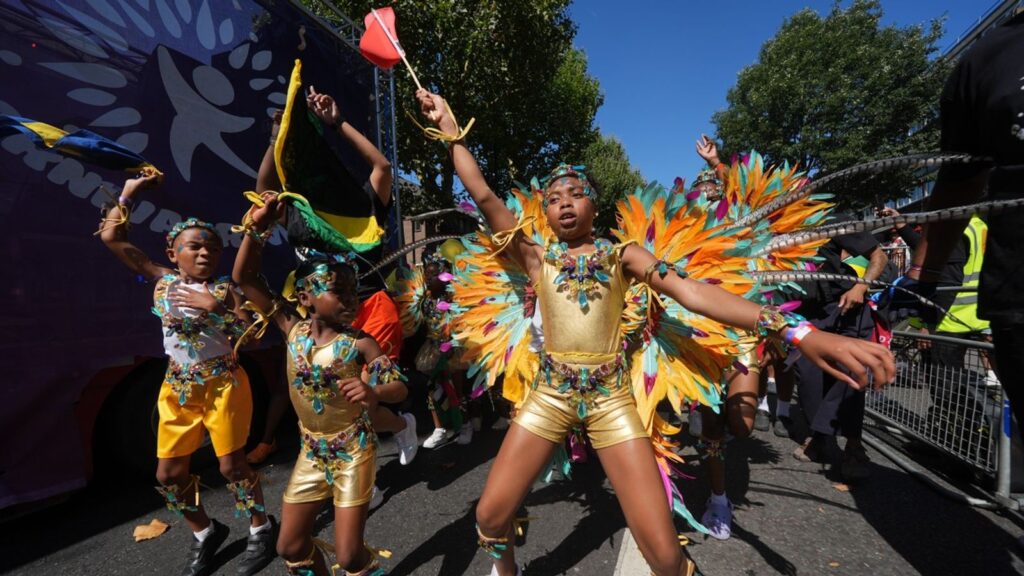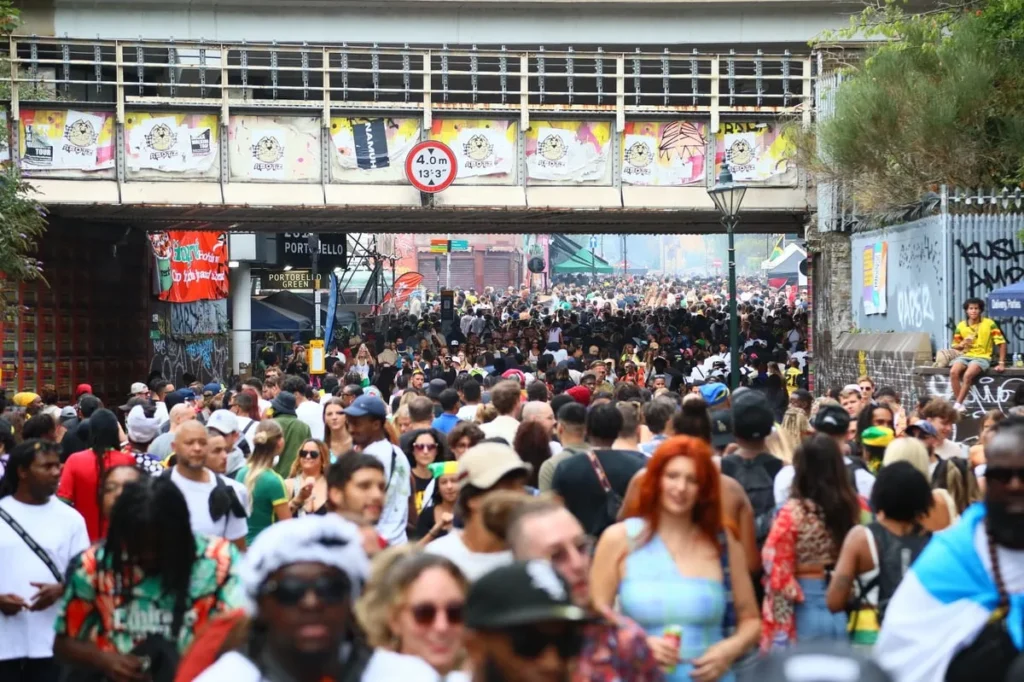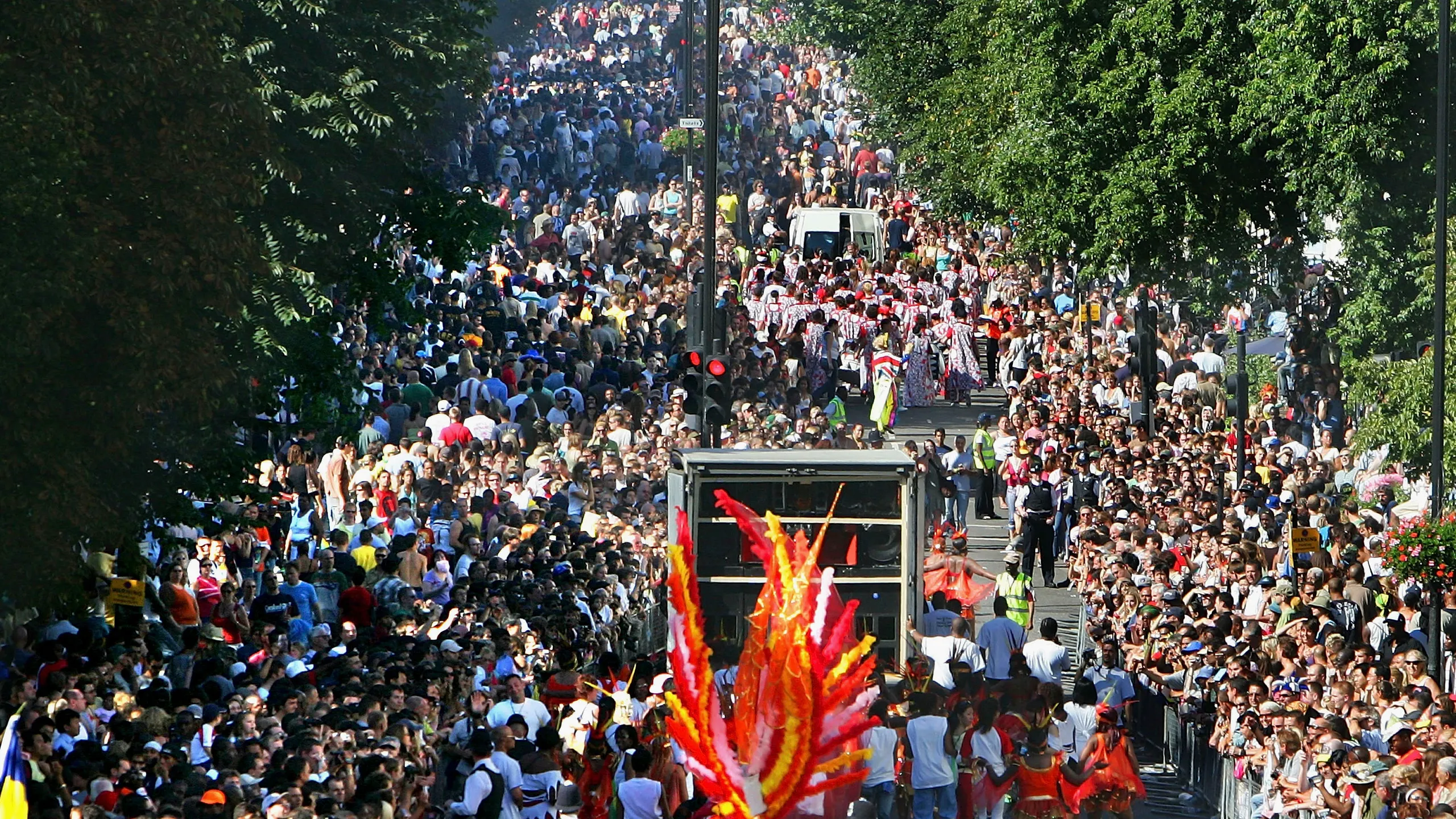Every year more than two million people pour onto the streets of London to celebrate Notting Hill Carnival, Europe’s biggest Caribbean cultural festival. Yet in 2025 the event came close to being cancelled due to a funding crisis, fierce debates over security, and the looming threat to cultural identity. The issue has drawn international attention, not only in the UK but also worldwide, as it concerns history, freedom, and heritage.
Funding Crisis and Sustainability Threat
For decades, Notting Hill Carnival has been a massive economic driver, contributing around £400 million annually to London’s economy. However, support from national cultural institutions such as the Arts Council has always been minimal.
The situation turned critical in June 2025 when a leaked internal letter revealed the carnival could be cancelled unless urgent funding was secured. This revelation shocked the public, as an event with such a major economic impact was shown to be financially fragile.
Days later, City Hall, Kensington & Chelsea Council, and Westminster City Council announced emergency funding of about £958,000. This support saved the 2025 edition but only for this year. Without long-term funding solutions, the carnival’s future remains uncertain.

Facial Recognition Controversy
Alongside financial troubles, Notting Hill Carnival 2025 was also marked by the deployment of Live Facial Recognition (LFR) technology by the Metropolitan Police. Cameras were installed at entry and exit points to identify individuals on wanted lists.
Police claimed the technology enhanced public safety. Commissioner Mark Rowley insisted that LFR is legally sound and has helped with more than 1,000 arrests in London since 2024.
Yet strong criticism followed. Human rights groups such as Liberty, Human Rights Watch, and Big Brother Watch warned that LFR carries racial bias, disproportionately targeting Black people and women. The Equality and Human Rights Commission (EHRC) further cautioned that its use risks breaching data protection and civil liberties.
Technology expert Professor Pete Fussey rejected claims of “bias-free” recognition, stressing that current trials were too limited and lacked the statistical validation necessary to ensure accuracy.

Cultural Identity at Stake
Notting Hill Carnival is far more than a street festival. It is a symbol of Caribbean identity in Britain, a marker of Black resistance, and an inclusive celebration open to everyone. Proposals to relocate the event or introduce paid ticketing were suggested as solutions but swiftly rejected by organizers and the community for undermining the carnival’s spirit.
Legendary sprinter Usain Bolt, attending for the first time this year, said relocating the event would “kill” its soul. His comments reinforced the argument that sustaining the carnival is not only about economics or security but also about safeguarding cultural heritage rooted since the 1960s.
Clash Between Culture and Regulation
The 2025 edition of Notting Hill Carnival highlights the clash between cultural preservation and modern regulation. Authorities push for tighter security using advanced technology, while communities demand protection of civil rights and historical values. Emergency funds have kept the festival alive for now, but structural problems remain unresolved.
Standing at a crossroads, Notting Hill Carnival raises a bigger question: can the UK balance safety, freedom, and cultural sustainability, or will it allow one of Europe’s most powerful symbols of resistance and freedom to fade away.









